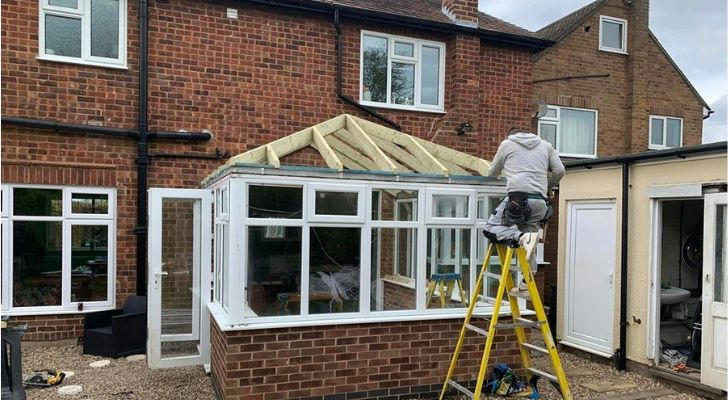The Ultimate Guide to Roof Replacement: Protect Your Home with a Stellar New Roof
Your roof isn't just a protective shield against the elements; it's a crucial component that enhances your home's curb appeal and overall value. If your roof is showing signs of wear and tear, it might be time to consider a replacement. Let's dive into everything you need to know about roof replacement, from costs to materials, ensuring you make an informed and cost-effective decision.

Why a New Roof is a Game-Changer for Your Home
A new roof offers more than just a fresh look. It provides:
Enhanced Protection: Safeguarding your home from weather-related damages.
Increased Energy Efficiency: Proper insulation can reduce heating and cooling costs.
Elevated Property Value: A modern roof can significantly boost your home's market appeal.
Decoding the Costs: How Much Does a Roof Replacement Really Cost?
Roof replacement costs can vary based on several factors, including the size of your home, the materials chosen, and labor charges. On average, homeowners can expect to spend between $6,700 and $29,800, with the national average around $9,900.
Cost Breakdown:
Materials: Asphalt shingles are the most economical choice, while materials like metal or slate are pricier but offer enhanced durability.
Labor: Skilled labor can constitute up to 60% of the total cost, varying by region and roof complexity.
Choosing the Right Material: Balancing Cost and Durability
Selecting the appropriate roofing material is pivotal. Here's a quick overview:
Asphalt Shingles: Affordable and versatile, costing between $3.40 to $8.75 per square foot, with a lifespan of 20 to 25 years.
Metal Roofing: Durable and energy-efficient, ranging from $6 to $35 per square foot, lasting 40 to 75 years.
Tile Roofing: Aesthetic and long-lasting, costing between $7 to $20 per square foot, with a lifespan of 40 to 50 years.
Slate Roofing: Timeless elegance and durability, averaging $12 to $30 per square foot, lasting 50 to 100+ years.
Labor Costs: Investing in Quality Installation
Labor is a significant portion of the roofing expense. Professional roofers typically charge around $60 per hour. Opting for experienced contractors ensures quality installation, potentially saving you from future repair costs.
Additional Expenses: What Else Should You Anticipate?
Beyond materials and labor, consider these potential costs:
Permits and Inspections: Essential for compliance with local regulations, costing between $100 to $1,400 for permits and around $240 for inspections.
Removing Old Roofing: Tear-off costs range from $1 to $5 per square foot, with disposal fees adding another $50 to $500.
Structural Repairs: Addressing underlying issues like damaged decking or trusses can add $500 to $5,000 to the total cost.
DIY vs. Professional Installation: What's the Best Choice?
While DIY might seem like a cost-saving option, roofing is a complex and potentially hazardous task. Professional installation ensures:
Safety: Mitigating risks associated with working at heights.
Expertise: Accurate assessment and quality workmanship.
Warranty: Protection against future issues with contractor warranties ranging from $500 to $2,000.
Signs It's Time for a New Roof
How do you know if your roof needs replacement? Watch for these indicators:
Curling or Missing Shingles: Compromises the roof's integrity.
Granules in Gutters: Indicates shingle deterioration.
Leaks or Water Damage: Signs of underlying issues.
Age: Roofs over 20 to 25 years old may be nearing the end of their lifespan.
The Bottom Line: Investing in Your Home's Future
Replacing your roof is a significant investment, but it's one that pays off in protection, energy efficiency, and home value. By understanding the costs, materials, and processes involved, you can make a decision that's both informed and aligned with your budget. Remember, while the upfront costs are considerable, the long-term benefits of a new roof are invaluable.
